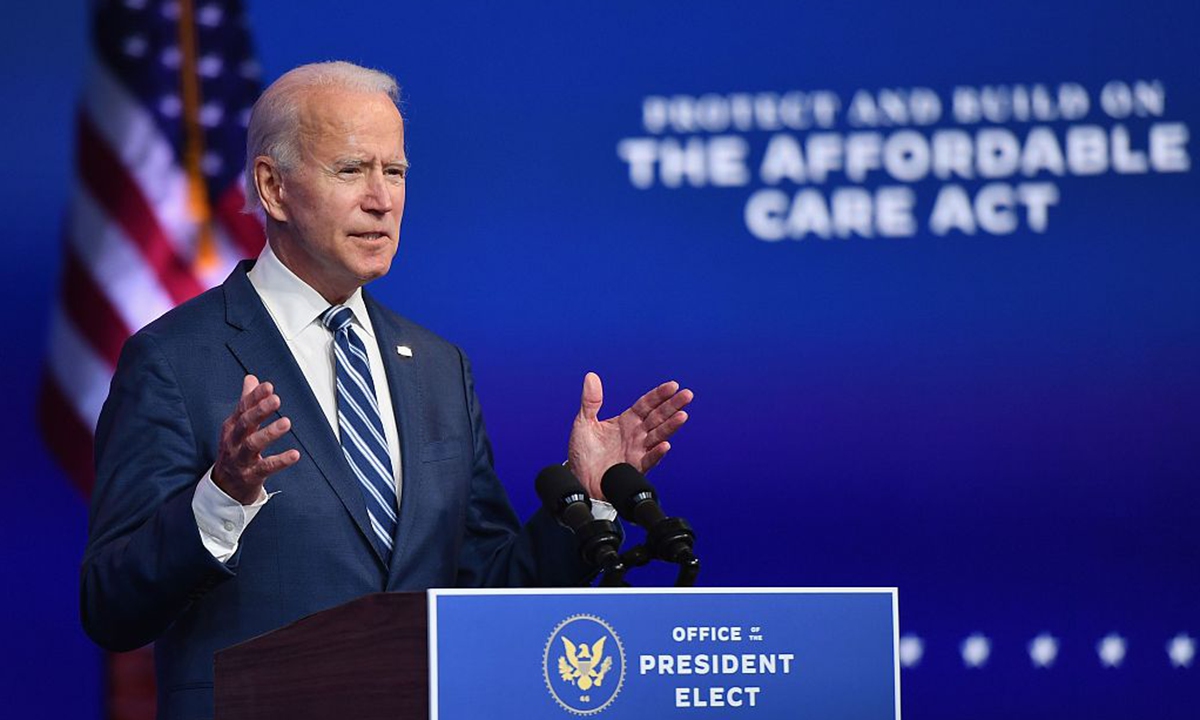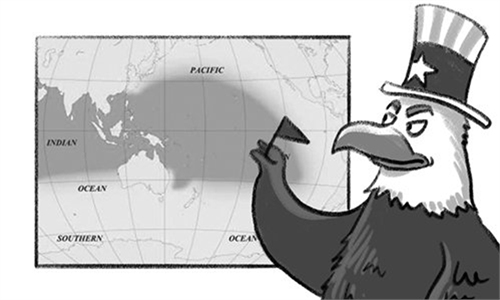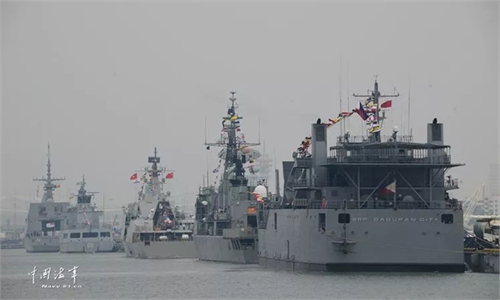
Joe Biden. Photo: VCG
Although Joe Biden faces many obstacles set by Donald Trump regarding the transfer of power, the outside world has been predicting what foreign policies the new US government will adopt.At present, the US is still undergoing severe epidemic surges that are nearly out of control. This will inevitably affect its leading international role. However, Biden and his team have sent a clear signal to the world that "America is back." This will be reflected in multilateral diplomacy in particular.
The attitude of Southeast Asian countries toward the new US government might best be described as "both expecting and nervous." Over the past four years, the influence of the US in Southeast Asia has shown an obvious downswing. For example, the ISEAS-Yusof Ishak Institute in Singapore interviewed more than 1,000 academics, policymakers, business people, civil society leaders and the media from Southeast Asian countries in 2019. The results showed that 73 percent of the respondents believed that China's economic influence "reigns supreme" in the region. In terms of politics and strategy, 45.2 percent of the respondents said that China was the most influential, while only 30.5 percent voted for the US.
This change is closely related to Trump's indifference to multilateral diplomacy and his emphasis on the "America First" agenda. For instance, his decision to withdraw the US s from the TPP and frequent absence from ASEAN Summits have cast doubts on the credibility and commitment of the US government.
Compared with the Trump administration, the new one led by Biden will likely make significant changes. We may see a more active US at multilateral diplomatic activities held by ASEAN. This is what Southeast Asian countries love to see. But at the same time, it will put more pressure on China's diplomatic front.
However, it will not be easy for Biden to completely eliminate Trump's negative "legacy." China has not only signed the RCEP, but it has displayed a positive attitude toward the CPTPP. This move shows that regional economic cooperation will not stop because of the absence of the US.
In addition, ASEAN and China are each other's largest trading partners. Such structural factors cannot be easily reversed. Although Biden has said that he may renegotiate about TPP, he has never made a promise to "return" to TPP/CPTPP. This is related to the trade protectionist force in the US which has been steadily increased under the "America First" doctrine over the past four years.
The US' policies toward Southeast Asia have demonstrated its inherent characteristics of "excessive militarization" for a long time. American scholar Brian Harding noted that, "US engagement continues to be well resourced on the defense side, with diplomacy under-resourced and economic engagement lacking focus."
Statistics from 2008 to 2016 show that China provided $42.3 billion worth of loans for infrastructure construction in Southeast Asian countries. The US only provided $1.1 billion. Whether or not the Biden administration will be able to mobilize sufficient resources to bridge this huge gap remains to be seen.
But this is certain: The US will invest more in Southeast Asia on security issues, and the South China Sea disputes will continue to be a major issue for the US to mobilize the regional countries. As a popular candidate for US Defense Secretary, Michele Flornoy holds the opinion that the US must upgrade its deterrence against China. In her view, the US needs to become able to sink all Chinese military vessels, submarines and merchant ships in the South China Sea within 72 hours.
What will Southeast Asian countries do in the face of renewed US security investments in the region? Some countries have already been forced to improve the relations with either China or the US. Yet other countries are still trying to resist this pressure altogether. Singaporean Prime Minister Lee Hsien Loong has repeatedly stated on different international occasions that Singapore does not want to take a side. Whether the US can successfully organize an "anti-China alliance" based on the South China Sea issue depends, to a certain extent, on China itself. If China can handle the disputes with neighboring countries more prudently, and accelerate the negotiations to sign the COC, it will be able to resist intervention from the US and its allies.
The author is an associate professor at the Institute of International Relations, China Foreign Affairs University.
The article was translated by Tang Zhiying of East China Normal University.


